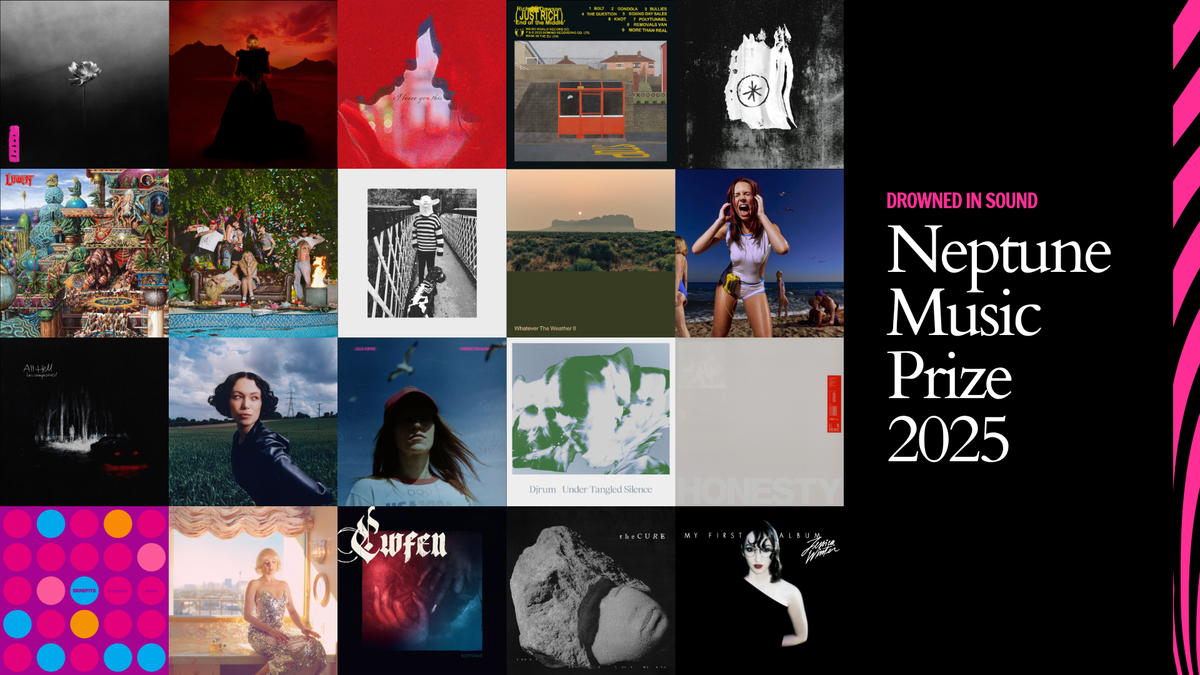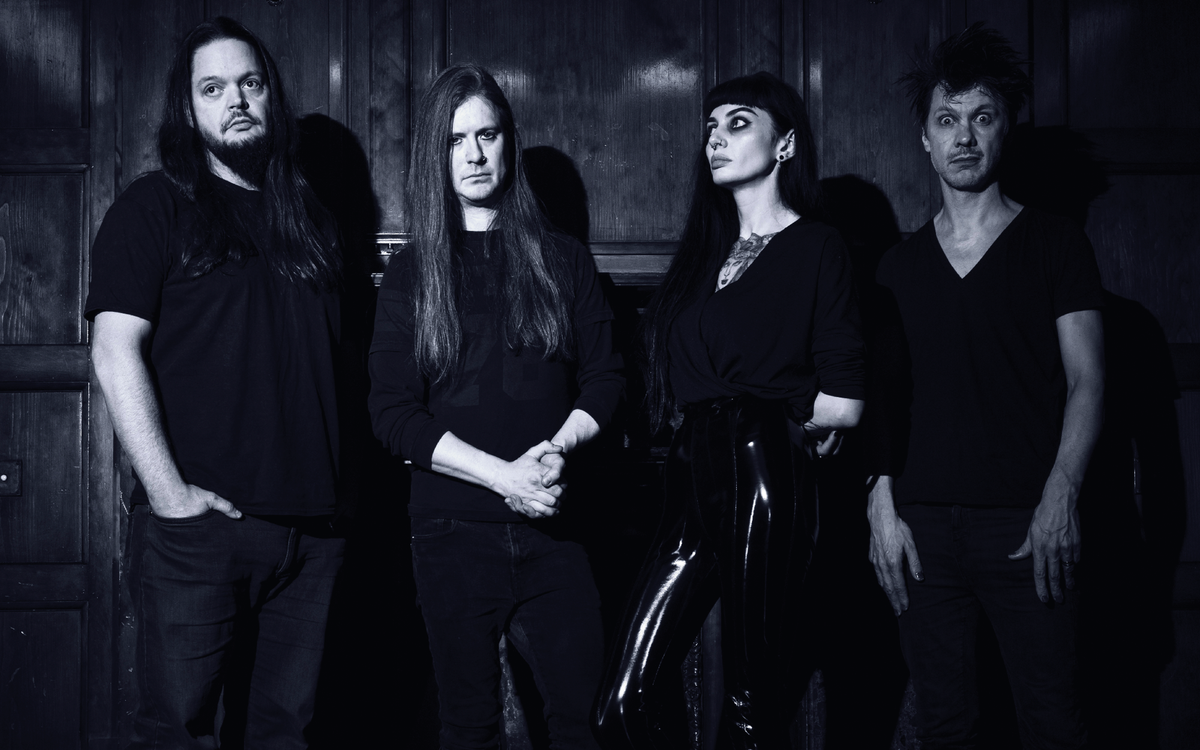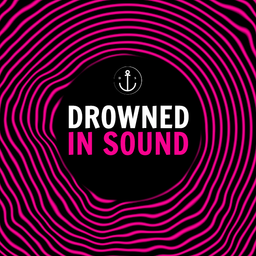Across mainstream music prizes, there's a wealth of left-field, challenging, brilliant music that gets left out. Entire genres often go unrecognised and this is the beauty of our annual Neptune Prize, where almost any kind of music imaginable - from ambient drones to punishing death metal via squelchy electro-pop - could take the crown, whether it brushes the ceiling of the mainstream or is a gem of the underground.
As ever, there was no entry fee and the Drowned In Sound community came together to nominate a long list, then vote on the albums that lit up their world in the past year.
ICYMI: Here's who was on this year's list:

This year's winner hails from the darker corners of Glasgow's heavy music scene, in the form of doomgaze newcomers Cwfen and their debut album Sorrows.
Oozing gothic charm and pitch-black melancholia, they conjure velveteen, multi-genre textures to match their outpourings of anguish. Of course, there's a lot on that album to appeal to those with a lot of black in their wardrobes, but, as vocalist/guitarist Agnes Alder and drummer Rös Ranquinn, explain in this conversation with DiS, they've hooked in people from outside their gloomy world too.
"It's one of the things that I've really enjoyed about people coming to see our music," Agnes says. "Sometimes you get the 'I'm not a metal fan, but.... [and I think]. 'Oh, you are, you were just waiting for your 'in'."
We spoke to the pair about the phenomenal year they've had, the usual lack of recognition metal has in mainstream spaces, and the messages they want to put across as a vocal, anti-fascist, queer-friendly band...
Congratulations – you’ve won the 2025 Neptune Prize! How does it feel?
Agnes: Surreal. I never won anything in my life, ever, and have definitely never won anything in terms of music before so this feels like all of the potential wins all at once. It feels really special. It feels like validation for the hard work that we put in. This last year has kind of blown us away. We put out Sorrows in May and we thought everything had sort of lulled, and it had its little moment, and it was so special to have this in the autumn as well, which is I think when this album was really for. All of us genuinely blown away, shocked, surprised, delighted.
Rös: It was kind of out of the blue; I was not expecting it. Some of the other bands on there, I've been listening to those albums all year myself, so to be nominated alongside them in the first place was cool. To somehow manage to have beaten them to the top spot is extra special.
The community’s had their ear to the ground with heavy music this year, with Lowen and Overhead, The Albatross also making the shortlist. Makes a change from other music prizes that acts like metal doesn’t exist!
Agnes: I completely agree. I was having this conversation with [Cwfen guitarist] Guy, actually, just last night. We were talking about how genre music can often divide a room, right? Some people are afraid of metal, and I compared it to - and this is not in any way a reflection on our music, saying it's anywhere near this good – but The Substance should have won loads of Oscars, and it didn't. I think it's because people are afraid of something that is just slightly outside of the norm.
I often find with music awards, there’s interesting, good stuff celebrated, but anything that is a little bit out there, on the sides, on the margins, crossing into different genres or spaces, can be overlooked. I think metal as well has potentially for people that don't consider themselves metal fans has a bit of baggage. I think it's just beyond what any of us could have possibly thought or expected that a metal album would be recognised. So, yeah, it's extra nice for that reason.”
You’ve had a great year – how are you processing it all right now?
Agnes: “It's strange. I was talking about this just the other day - I had this realisation. It was only after we'd been on tour with [American doomgaze band] Faetooth, and we'd had a really interesting year that I was like, ‘I think I'm a singer in a metal band.’ Even up until that point, that all still felt like something that I wasn't comfortable kind claiming for myself.
I feel like it's changing my musical identity in some ways as well. I’d always been that guitarist, songwriter, person in the background. The fact that it's taken a lot of people coming to see us, and a lot of people saying nice things, for me to realise that actually, yeah, maybe, I'm a front person in a band now has been unusual on a number of fronts, but amazing. There is a slight little sort of bit of panic that creeps in in terms of, ‘How are we going to keep doing this? How are we going to keep writing music like this, [which] moves people and means something to people?’ We did that by accident, a little bit, not in terms of the intent or the songwriting.”
Rös: “I'm not sure I have entirely processed the album and the reaction and what's going on around about it. I'm one of those people that doesn't get excited about a holiday until I'm there and with the album, and with all the nice things that are being said [and that are happening], new information keeps coming in about the album and about the band, that keeps pushing the processing further and further away for me.
I feel like I still haven't properly sat down and thought ‘We did that, we actually did that, and it's out there, and people are enjoying it.’ I think that will come eventually, but it might need to be the second album when that comes out, then I'll go back and process the fact that the first album happened, and it's a part of my life and a part of other people's lives as well.”
You’re operating as a proudly queer, anti-fascist band wanting your gigs to be a safe space for people. Sorrows also deals quite heavily with emotional response to the state of the world right now. What role do you think metal can play in times like these?
Agnes: “I don't want to overstate it and make it out to be more than it is, [but] on a very base level, it offers collective catharsis. For us, in terms of playing shows, we're always very deliberate about where we play, who we play [with], for the signals that we're sending by the types of gigs that we accept or reject, in terms of would they be safe and comfortable for our audience and the widest, most inclusive possible audience.
I think there is a role when you're in any kind of public facing space, even tiny, tiny little metal bands, to speak out and hold space and continue to respond to what's going on around you. I know there are some bands who say that they don't want to play politics or whatnot, and I think that you can't do that.
Our values are important to us. I would rather do the right thing than say the convenient thing or not say or do anything at all. I think when you are in a band as well, you have to model the type of space that you want other people to occupy as well. I think especially in some of the more extreme genres, and we don't quite sit in that space, bad actors sneak into some spaces sometimes. I think especially in Glasgow, we have a very queer, very inclusive scene, and we want to keep it that way as much as possible.”
This post is for paying subscribers only
Subscribe now and have access to all our stories, enjoy exclusive content and stay up to date with constant updates.



